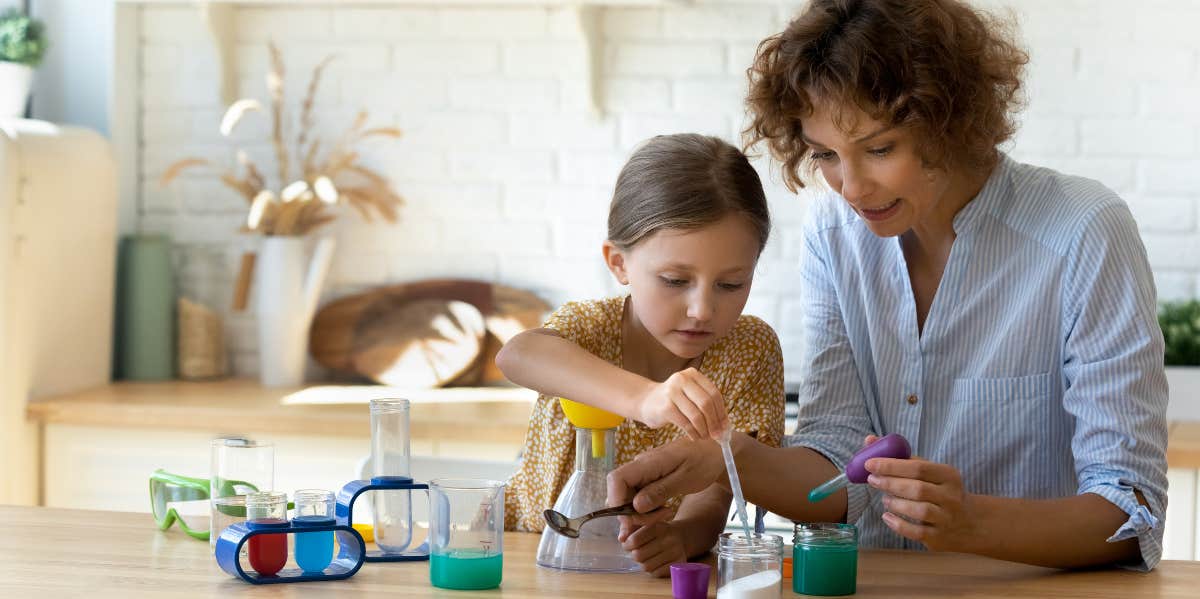Public School Teacher Reveals What Homeschooled Students Are Actually Missing Out On
It might not be what you expect.
 Fizkes / Shutterstock
Fizkes / Shutterstock Forced teaching styles, long hours and separation from the passions that make kids, well, kids are just a few of the things that adults reflecting on their childhoods spent in public school harp on. Public school can be amazing for some and traumatic for others.
So, if the negative discourse around public education is so mainstream, why isn’t homeschooling promoted as a more accessible option?
It’s no secret that there are stereotypes about homeschooled children, but one public school teacher is explaining why she's passionate about homeschooling her own children.
This public school teacher shared the things homeschooled students are missing out on — to their benefit.
A public school teacher shared her take on what homeschooled students are “really missing out on,” and it’s not what you’d expect.
“Having to sit at a desk for multiple hours each day,” the former teacher says, is what kids are really missing out on when they attend public schools.
In their younger years, when kids are in elementary or middle school, they’re more likely to have breaks for recess or lunch. But once they’re in high school that time dwindles away. But, she notes, the opportunities that children are missing out on by spending hours a day at school are far more detrimental to kids' development than that alternative.
While some students are ‘chained to desks’, homeschooled students are free to live their childhoods.
Disturbing trends have emerged, author Brad Johnson admits, as kids spend less time in physical education classes and in recess over the past 30 years. Attention-deficit disorders, obesity, and disengaged learning are all things emerging from the structure of public schools and modern-age education curriculums.
This teacher’s TikTok account relays a similar narrative.
“They have 6 or 7 classes a day…with only 5 minutes of passing time to engage with friends,” she explained. “By high school, they're given homework…which ends up taking them 2 to 3 more hours of time at night where they’re sitting at their desk doing that homework,” the teacher added. “It’s just not necessary — kids don’t need to be sitting at their desks or working for that long.”
While public school kids are forced to work all day, whether in their classrooms or at home, homeschooled children have the luxury to experience their education in a much different way. A way that might be much healthier for a majority of kids.
“They don’t have hours of homework after [school],” the teacher says about homeschooled children’s workload. Even when they’re done working for the day, they can use their time how they want to. “Even when they’re working on their lessons, they don’t have to be at a desk. They can do it in a hammock or laying on the floor.”
Being able to cultivate new passions, spend time with family and friends, and develop their identities in a comfortable environment allows homeschooled kids to break the norm of “peer-pressured” conformity.
Homeschooled students also miss out on much of the anxieties and stress that many public school students experience.
With in-person learning being widely accepted, it’s hard to escape assumptions about homeschooled students. Similar to adults who choose remote work, society immediately deems homeschooled students as “unmotivated social outcasts,” a narrative that’s misleading and relatively untrue.
“The level of anxiety, low self-esteem, and social anxiety that I saw in my students broke my heart, and majority of the time it was from situations in public schools," the teacher admits in another video. “They were so rude to each other, to teachers, and to the principals... because of the behaviors they learned in school.”
With the state of society and the world at large, it’s clearly not just public schools to blame for the behavior of students in their classrooms. However, this teacher is quick to notice the attitude and behavior of homeschooled students in comparison.
“Homeschoolers are different," she said. "You can tell they are in all the best ways.”
Studies show that homeschooled kids do better in higher education than public schoolers.
With more engaged personal lives, well-versed social skills and a sense of identity developed outside the eye of classmates and teachers, homeschooled students are often more successful in higher education than their public-schooled counterparts.
“Their motivation is higher, they tend to do better in college. The ways that they are different, in my opinion, are all positive,” the teacher said. “Emotional regulation, time management, and major life skills like socializing” are all things that homeschooled students are better at developing outside of the traditional classroom, according to this teacher.
So, before you judge a book by its educational cover — or even select your own child’s educational path — think about where they’ll flourish into their most authentic selves. While homeschooling might not be accessible for all students, families, or life circumstances, think about what you can do to provide a safe learning environment for all children.
Zayda Slabbekoorn is a news and entertainment writer at YourTango. They focus on everything from pop culture analysis to human interest stories. Connect with them on Instagram or TikTok.

